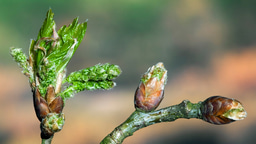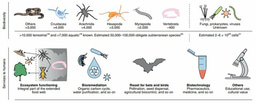Nature Climate Change Turns 10!
Published in Ecology & Evolution

To celebrate our 10th anniversary, we reflect on our past decade, talk to experts about the exciting developments of the last decade, and discuss some of the remarkable papers published in the journal with our past and present editors.
In our April Editorial, we look back at climate change over the past 10 years, which have seen the warmest years on record (2016, and now 2020) and increases in anomalous and extreme events (global weirding). These changes have resulted in increased public engagement, but inconsistent political support. Scientific understanding of climate change has accelerated, with a greater understanding of the value of interdisciplinary collaborations. We take pride in the diversity of subjects published in Nature Climate Change, and thank our global community of authors, reviewers and readers. Read the full editorial here.
As a reflection of the wide range of science published in Nature Climate Change, we asked 10 experts from different climate change fields to share their thoughts on notable developments of the past decade. Topics range from climate modelling, to the hydrosphere and marine environments, to terrestrial carbon sinks, policy, economics and behaviour. Our authors discuss the discoveries that excited them, as well as their hopes for the future of climate change research.
We also asked our past and present editors, to discuss some of the extraordinary papers that have crossed their desk in the past decade, explaining why certain studies stood out to them.
Finally, the very talented Valentina Monaco also developed this beautiful gif to celebrate the occasion, based on an image by Malte Mueller (Getty): https://twitter.com/NatureClimate/status/1379371880650567682 . Be sure to follow us on Twitter for our latest updates.
Our Ten Year Anniversary Focus, including the editorial, expert viewpoint and editors feature, as well as associated publications, can be found here. Access to the viewpoint and feature will be free for the month of April.
.jpg)
Follow the Topic
-
Nature Climate Change

A monthly journal dedicated to publishing the most significant and cutting-edge research on the nature, underlying causes or impacts of global climate change and its implications for the economy, policy and the world at large.



Please sign in or register for FREE
If you are a registered user on Research Communities by Springer Nature, please sign in